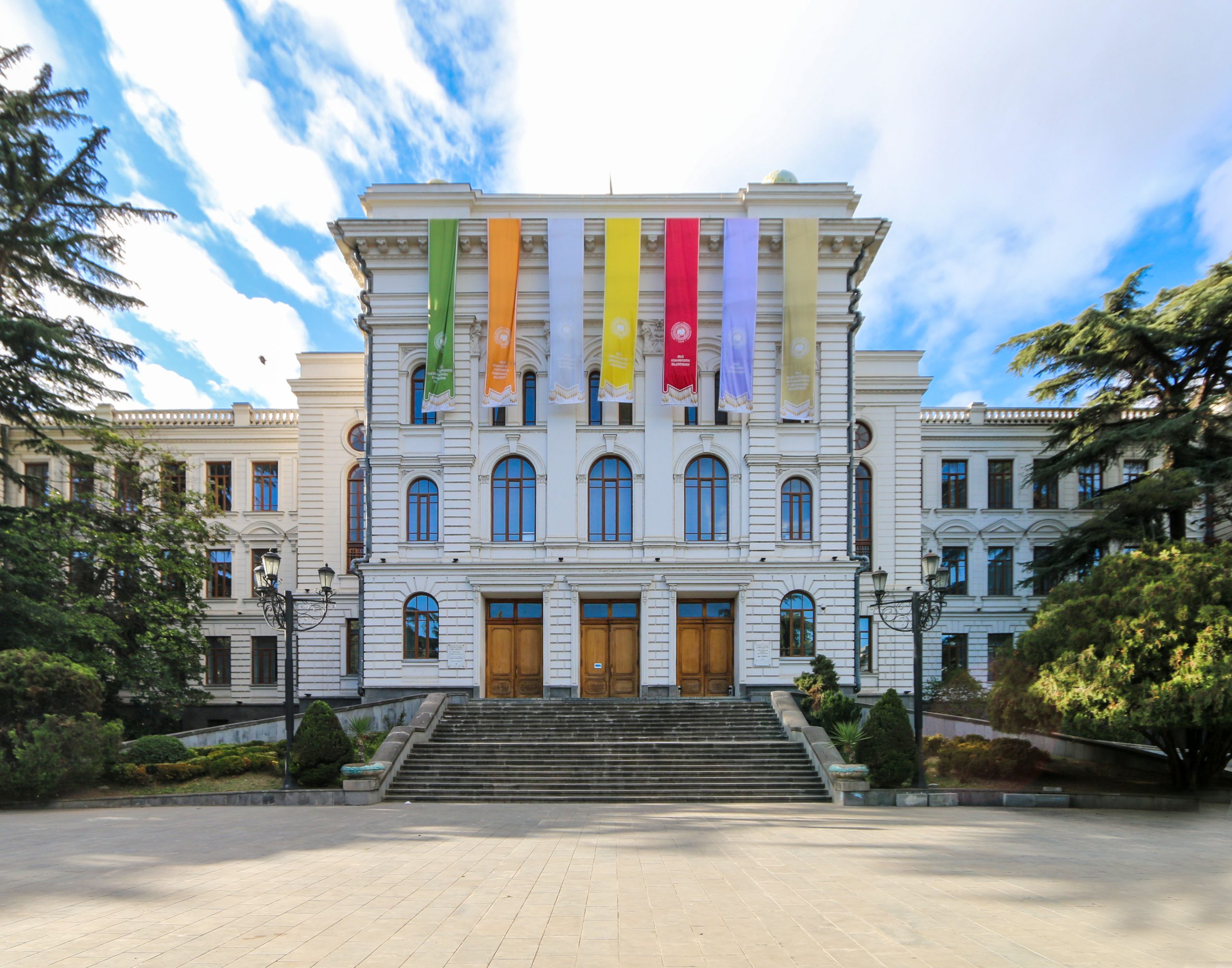
Address:
Plot No 8, block N, Second Floor, Opposite Axis Bank, Sector -18, Noida - 201301
City:Noida
Vendor Type:Service Provider
Ivane Javakhishvili Tbilisi State University (TSU) in Georgia is a renowned institution offering an MBBS program that has become popular among international students due to its academic excellence, modern infrastructure, and global recognition. Founded in 1918, TSU is one of the oldest and most prestigious universities in the Caucasus region.
Key Aspects of MBBS at Ivane Javakhishvili Tbilisi State University
- Global Recognition: TSU’s medical degrees are acknowledged by international bodies like the World Health Organization (WHO) and are listed in the World Directory of Medical Schools. Graduates can take licensing exams such as USMLE, PLAB, and MCI/NMC to practice medicine in various countries, including India.
- English-Medium Program: The MBBS course is taught in English, making it accessible to international students from countries like India, Pakistan, and African nations, removing language barriers during studies.
- Modern Infrastructure: TSU provides state-of-the-art teaching and research facilities, including advanced laboratories and clinical centers equipped with modern medical technology to give students practical training.
- Qualified Faculty: The university employs experienced professors, doctors, and researchers who deliver high-quality education and practical knowledge to students.
- Affordable Medical Education: Georgia, including TSU, offers cost-effective education, with much lower tuition fees and living expenses compared to Western Europe and North America.
- Diverse Student Body: TSU hosts students from various countries, creating a multicultural environment that fosters a rich learning experience and cultural exchange.
MBBS Program Structure at TSU
- Duration: The MBBS program spans 6 years, including 5 years of academic coursework and 1 year of clinical internship or practical training.
- Curriculum: The program adheres to European medical education standards, covering foundational medical sciences and clinical subjects. It emphasizes hands-on training at affiliated hospitals.
- Clinical Rotations: In later years, students participate in clinical rotations at TSU’s teaching hospitals, gaining practical experience under the supervision of experienced healthcare professionals.
- European Credit System: TSU follows the European Credit Transfer and Accumulation System (ECTS), facilitating easier credit transfer to other European institutions if needed.
Admission Requirements
- Educational Qualifications: Applicants must have completed higher secondary education with core subjects in Physics, Chemistry, and Biology, with at least 50% aggregate marks in these subjects.
- English Proficiency: Applicants must demonstrate proficiency in English, typically through IELTS or TOEFL, though exemptions may apply to those who completed their previous education in English.
- No Entrance Exam: TSU generally does not require international students to take entrance exams, though they must meet the university’s admission criteria.
Application and Visa Process
- Application: Students can apply online via the university’s website or through authorized representatives. Required documents include high school transcripts, a valid passport, and proof of English proficiency.
- Documents Required:
- High school transcripts
- Passport
- Medical fitness certificate
- English proficiency certificate (if applicable)
- Passport-sized photos
- Visa Process: Upon receiving an acceptance letter, students must apply for a Georgian student visa, with the university assisting throughout the process.
Costs and Living Expenses
- Tuition Fees: The annual tuition fee for MBBS at TSU ranges from $4,000 to $5,000, making it an affordable option compared to medical schools in Europe or the US.
- Living Expenses: Monthly costs for accommodation, food, and transportation range from $250 to $500, making Georgia a cost-effective destination for international students.
- Accommodation: TSU offers on-campus dormitories and assists students in finding affordable off-campus housing.
Benefits of Studying MBBS at TSU
- Internationally Recognized Degree: TSU’s medical degree is accepted worldwide, allowing graduates to practice in multiple countries after passing the required licensing exams.
- Affordable Costs: Both tuition and living expenses are significantly lower than those in many other countries, making TSU a financially viable choice.
- Extensive Clinical Training: The university offers thorough clinical exposure, giving students practical experience in real-world healthcare settings.
- Safe and Welcoming Atmosphere: Georgia is known for its safety and friendly environment, making it an ideal location for international students.
Post-Graduation Opportunities
- Further Studies: MBBS graduates can pursue postgraduate studies (MD, MS) in Georgia or countries like the USA, UK, and India.
- Medical Practice: Graduates are eligible to practice medicine in their home countries or internationally, provided they pass the necessary licensing exams.
Considerations
- Language: Although the MBBS course is in English, students may need to learn basic Georgian or Russian for interactions during clinical training.
- Weather: Georgia has cold winters, so students should be prepared for the climate, especially if they are from warmer regions.
- Cultural Adaptation: International students should be ready to adjust to a new cultural environment, although Georgia is known for its hospitality.
Conclusion
Ivane Javakhishvili Tbilisi State University offers an attractive option for international students pursuing MBBS. With globally recognized degrees, advanced facilities, affordable education, and strong clinical training, TSU provides an excellent environment for aspiring doctors.
